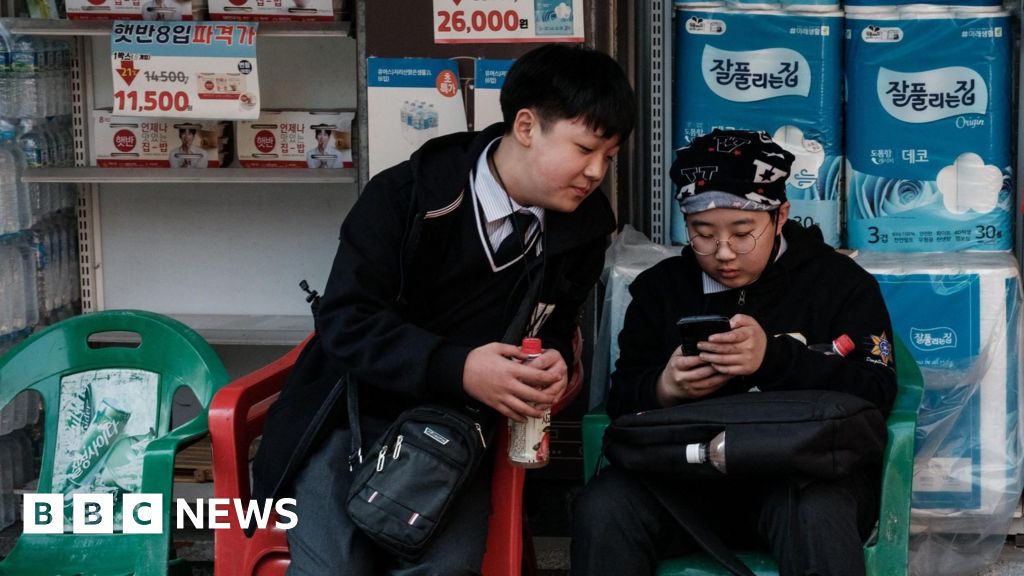South Korea has passed a bill banning the use of mobile phones and smart devices during class hours in schools - becoming the latest country to restrict phone use among children and teens.
The law, which comes into effect from the next school year in March 2026, is the result of a bi-partisan effort to curb smartphone addiction, as more research points to its harmful effects.
Lawmakers, parents, and teachers argue that smartphone use is affecting students' academic performance and takes away time they could have spent studying.
The ban has its sceptics, including students, who question how it would work, its wider implications, and whether it is addressing the root cause of addiction.
The bill passed convincingly on Wednesday afternoon, with 115 votes in favour out of 163 members present.
Most South Korean schools have already implemented some form of smartphone ban. Some countries like Finland and France have banned phones on a smaller scale, while others like Italy, the Netherlands, and China have restricted phone use in all schools. However, South Korea is among the few to enshrine such a ban in law.
Children these days just can't seem to put their smartphones down, says Choi Eun-young, mother of a 14-year-old in Seoul. Nearly a quarter of the population, according to a 2024 government survey, admits to depending too much on their phones, with the figure climbing to 43% for those aged 10 to 19.
Cho Jung-hun, an MP who introduced the bill, cites significant scientific and medical proof that smartphone addiction has harmful effects on students' brain development and emotional growth. The law gives teachers the authority to stop phone use on school premises and encourages educational efforts regarding smart device use.
With exemptions for students with disabilities and for educational purposes, the law reflects ongoing concerns over how smartphone addiction disrupts learning and social interactions, and the need for a balanced approach that prioritizes both education and mental health.


















